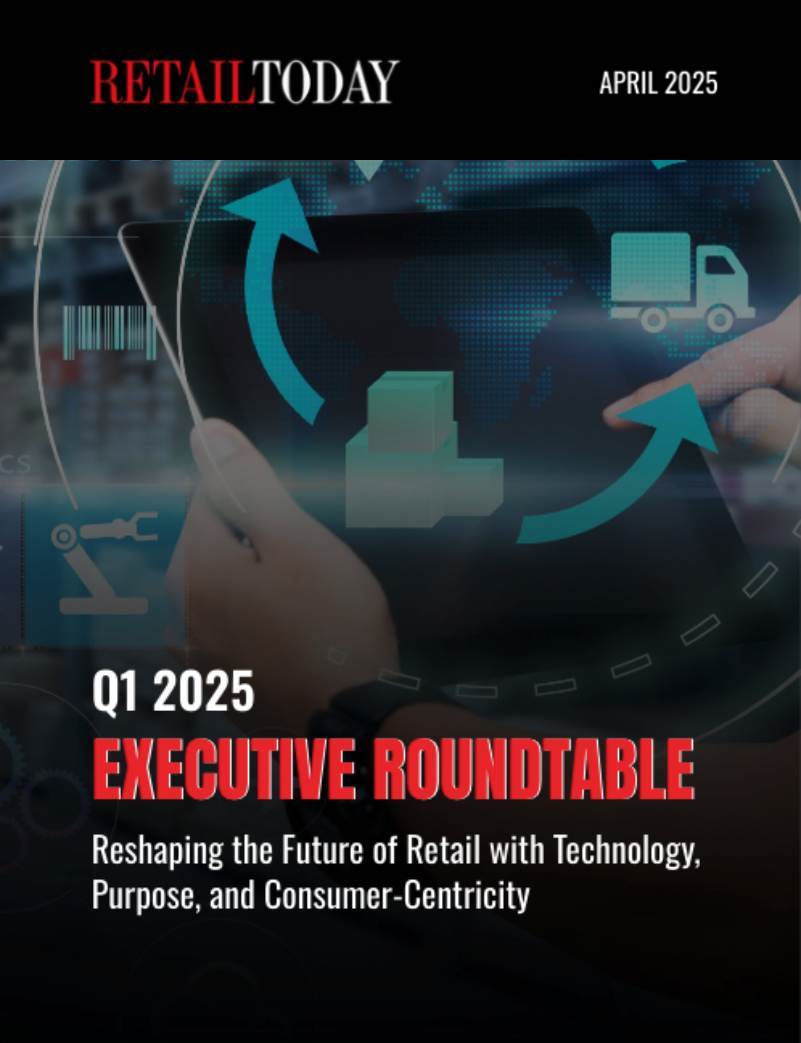AI’s impact on the retail industry
Artificial intelligence (AI) adoption is rapidly expanding across all business sectors, including the retail industry. According to a recent study by Nvidia, 42 percent of surveyed retailers are already using AI and an additional 34 percent are assessing or piloting AI initiatives. When asked about the specific AI-enabled applications they are using, respondents gave examples ranging from demand forecasting and prediction to conversational AI.
As integration of AI into the retail sector stands at the forefront of overall adoption, it is important to recognize its limitations. AI relies on textual and visual data, which introduce biases and culture nuances. Evaluating its use critically is crucial. While the current AI models offer benefits, they may lack the necessary data for effective product development. Although AI excels at ideation and visual storytelling, additional insight and rationale are needed to enhance customer satisfaction.
Beyond product development, AI opens up new opportunities in the retail space. AI has the potential to recognize retail in the numerous ways, including:
- Personalized Recommendations: AI can provide tailored customer suggestions based on individual preferences and shopping history, enhancing engagement and loyalty.
- Inventory Management: AI can predict trends and market analysis.
- Quality Control: Leveraging data analytics and machine learning minimizes resulting in higher product quality and customer satisfaction.
AI’s virtual uses impact on retailers
The introduction of AI into the retail sector is reshaping how retailers manage every stage of their product lifecycle, from initial design to the customer experience. This shift goes beyond simply adopting new technology, it’s about rethinking how products are modeled and personalized. Retailers now need to integrate AI within their CAD systems to ensure that product designs and customer preferences match. Retailers must refine their search and recommendation systems to meet diverse customer needs and avoid inaccuracies that could lead to dissatisfaction.
One use case for AI that is revolutionizing the retail experience is the virtual mirror, which allows customers to try on clothes virtually, therefore reducing the need for physical samples and enhancing the shopping experience. This technology provides consumers with a more convenient shopping experience and helps retailers manage inventory effectively.
According to the aforementioned Nvidia study, retailers are exploring virtual world use cases for either consumer engagement or enterprise and product visualization. This engagement rises to 39% for retailers with more than $500 million in annual revenues, led by the cosmetics, beauty, and perfume segments for applications such as virtual try-on to enhance customer experiences.
Challenges arise with virtual mirrors addressing body dimensions and limitations in technology, particularly in accurately representing diverse body sizes, skin colors, and age groups due to the scarcity of comprehensive, high-density biological studies and the prevalence of human programming biases. Currently, the virtual mirror can let the consumer see if a blouse looks good, but it cannot ensure proper fit. Similarly, virtual try-ons allow you to test shoes that may stretch to fit your foot, but it does not reveal precise details like the fittings between your toes or around your ankle. AI scientists are working to solve these challenges, which will impact retailers abilities to refine product designs and better manage inventories.
As retailers embrace AI, they must focus on ethical data use and transparency to fully leverage its benefits and redefine their relationship with consumers.
AI impact on consumers
AI is reshaping the retail industry by offering a more personalized shopping experience and aiming to reduce product returns. Retailers can use AI to tailor recommendations to individual preferences, enhancing customer satisfaction and streamlining the shopping process. This customization makes shopping more efficient and enjoyable for consumers.
Nevertheless, there are challenges associated with AI in the retail space, such as ensuring accurate product information and fit. Misinformation in AI-generated suggestions can frustrate consumers, highlighting the need for transparency and reliability in AI systems to maintain customer satisfaction.
AI technologies like virtual fitting rooms and 3D visualization can improve online shopping by helping consumers better understand how products look and fit. In the retail industry, shoe companies are increasingly adopting 3D printing to enable consumers to customize their footwear. AI offers valuable insights into consumer behavior, allowing retailers to provide more targeted offers and engage customers through personalized experiences and customization options.
Additionally, AI can boost sustainability by optimizing production processes and minimizing waste. Ensuring that AI is implemented with transparency and accuracy is essential for enhancing the overall consumer experience and fostering trust in the evolving retail landscape.
Navigating Next Steps
To successfully integrate AI into retail operations, retailers must adopt a comprehensive strategy that includes employee training, a solid understanding of AI’s capabilities, and adaptable business processes. Key to this preparation is implementing extensive training programs to improve AI literacy among all employees, ensuring they can accurately interpret AI data and understand its limitations.
Retailers should evaluate their current processes and AI applications to identify gaps, considering that AI simulations may not always meet practical needs or customer expectations. Effective language processing is crucial for AI’s success in customer interactions, so systems must handle diverse queries accurately.
In addition to implementing AI, retailers should look into a thorough review of their business models and organizational culture to see how they approach and handle AI. This will help retailers leverage AI to enhance product design, inventory management, and pricing strategies. AI-driven insights and personalized experience can improve customer satisfaction and loyalty while limiting routine tasks that can reduce costs.
Preparing for AI’s impact not only involves technological upgrades but also economic and workforce considerations, making thorough, strategic planning will leverage AI effectively in the evolving retail landscape.
Technology experts working through the guidance of IEEE Standards Association are focused on providing AI developers to enable the next generation of virtual retail experiences and other use cases. To learn more, visit: https://standards.ieee.org/industry-connections/3d/bodyprocessing/
Carol McDonald (Gneiss Concept) has 30 years in Manufacturing Engineering and is Chair of IEEE P3141, 3D Body Processing Standards group. Andrey Golub (Else Corp) has expertise in design automation and AI-driven engineering, Emma Scott is Developer in engineered fit practice to drive apparel design (Intelligent Shaping) and Katy Schildmeyer (KS Apparel Design) is Consultant in 3D Fit standards and avatar creation.







